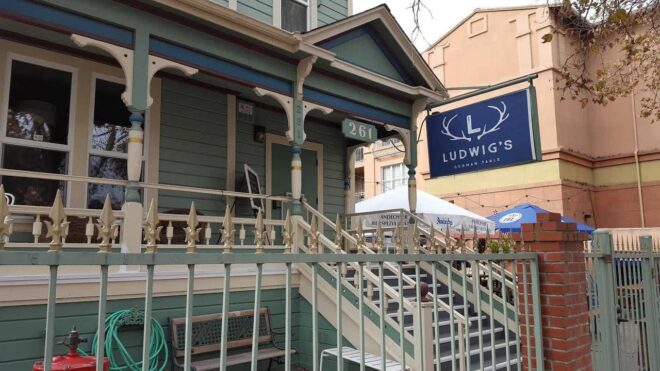15 restaurant interview questions to ask job candidates
Editorial Team
6 min read
In the fast-paced food service industry, you need people who understand and care about your restaurant’s vision, food, operations, and customers. Finding and hiring the right employees to work in your restaurant is essential to your success. Asking the right restaurant interview questions can help you find those people to build your team.
Here are 15 interview questions restaurant managers or owners can use to help learn more about each candidate and how that person can help your restaurant thrive.
- Tell me about yourself.
- Why do you want to work in the restaurant industry?
- What is your experience with this role?
- How familiar are you with our restaurant?
- What does customer service mean to you?
- Can you provide an example of a time when you provided a good customer service experience?
- Can you share an example of poor customer service you have seen or experienced?
- Provide an example of how you dealt with a problematic customer, or share what you would do if you encountered one.
- What are your biggest strengths?
- What are some weaknesses you can work on?
- Describe how you would work effectively in a team structure.
- What are your career goals?
- How do you feel about sharing tips?
- What hours are you available?
- Why should we hire you?
1. Tell me about yourself.
After exchanging greetings, have your candidates tell you about themselves. It’s a practical icebreaker statement that lets your prospective employees speak freely without any topic restrictions they may face with more formal restaurant owner interview questions.
2. Why do you want to work in the restaurant industry?
It’s important to know what motivates your team members, whether they enjoy the fast-paced nature of restaurant service or working with customers. The restaurant industry can attract employees from all walks of life. Some might have previous experience in the industry and need a job to pay their rent or college tuition; some may only need a part-time job to earn extra money; and some may need to support themselves and their families full-time in a familiar setting.
3. What is your experience with this role?
Asking this question can help you gauge your candidates’ familiarity in the restaurant industry. Have they worked in the kitchen? Seated guests as a host or hostess? Served drinks as a bartender? Waited tables? Worked the counter as a cashier? The question also allows them to share how much overall experience they have working in restaurants, helping to provide you with quantifiable information to later measure against other candidates.
4. How familiar are you with our restaurant?
This question is a natural follow-up to the previous one about their experience, and it can help you determine what makes your restaurant appealing to candidates. It also lets you know whether their interest in your restaurant is organic, based on prior dining experiences at your establishment, or research-based. Plus, it can help you figure out if their level of enthusiasm to work at your restaurant, or if they are just looking for any type of job at the moment.
5. What does customer service mean to you?
This question allows you to see whether candidates’ ideas on customer service align with yours. Ideally, you want to hear them say something along the lines of “Customer service means exceeding customer expectations, politely solving any issues that might arise, and ensuring guests become repeat customers at your restaurant.”
6. Can you provide an example of a time you provided a good customer service experience?
This question puts the previous question to the test, asking for a specific example of a time they provided good customer service. Pay attention to details to determine whether they worked to go above and beyond or did what they needed to do to satisfy the customer and move on to the next one.
7. Can you share an example of poor customer service you have seen or experienced?
Asking this question is a continuation of the two preceding questions. It can help give you insights into how attuned candidates are to the differences between excellent, acceptable, and poor customer service.
8. Provide an example of how you dealt with a problematic customer, or share what you would do if you encountered one.
Every restaurant worker eventually encounters a problematic customer or two, but the important part is how they handle each situation. Sometimes employees can’t predict or prevent challenging situations with people who want to complain or cause problems. Still, you need to know each potential employee’s professional philosophy for handling a difficult customer.
9. What are your biggest strengths?
Restaurant workers need confidence, composure, determination, punctuality, accuracy, and speed. Listen for these personality traits in their responses.
10. What are some weaknesses you can work on?
All workers have some weaknesses, but some are more damaging in the restaurant industry than others, such as lack of patience or punctuality and poor memory skills. Some shortcomings may be worth the risk, but others might serve as red flags that could put your business at risk.
11. Describe how you would work effectively in a team structure.
Restaurant work and teamwork go hand in hand. As you’re building your team, make sure you’re hiring people who believe in teamwork and could work well together.
12. What are your career goals?
Understanding candidates’ career goals can help give you an idea of how long they plan to commit to working at your restaurant and help you determine if your employees might like to move into different positions on your staff eventually. Offering opportunities for career growth could attract more candidates to your open positions.
13. How do you feel about sharing tips?
Sharing tips is a well-known part of restaurant work. Every candidate should be aware of your policy and understand how it works in your restaurant to help avoid any miscommunication, disappointment, or anger once hired.
14. What hours are you available?
This question is critical to successful, professional relationships with prospective employees. Everything hinges on scheduling employees strategically to ensure coverage for every shift. Ideally, candidates will seek regular shifts and remain flexible for others.
15. Why should we hire you?
The answer to this closing question lets you know how well candidates understand your restaurant and what you need from them. It also shows their level of enthusiasm.
Once you have asked all your restaurant interview questions, be sure to ask each candidate if they have any further questions about your business, the job, or other things like benefits and paid time off. Once all questions have been addressed, cordially end the interview, thanking the candidate and letting him or her know the next steps in your hiring process.
Are you interested in learning more about how Clover can help you run your restaurant business more efficiently and effectively? Contact a Clover Business Consultant today.
CONTACT SALESRelated Posts
How to finance a restaurant
Ludwig’s German Table
Popular Topics
Stay In Touch
Sign up and learn more about Clover.
Thank you for your subscription!
Recent Stories
- Jewelry store supplies and equipment needed for opening day
- How small businesses can use employee discounts to retain staff
- Tips and tricks for opening an outdoor pop-up restaurant
Please share your contact information
to access our premium content.
Thank you for sharing your contact information.
Download Now





